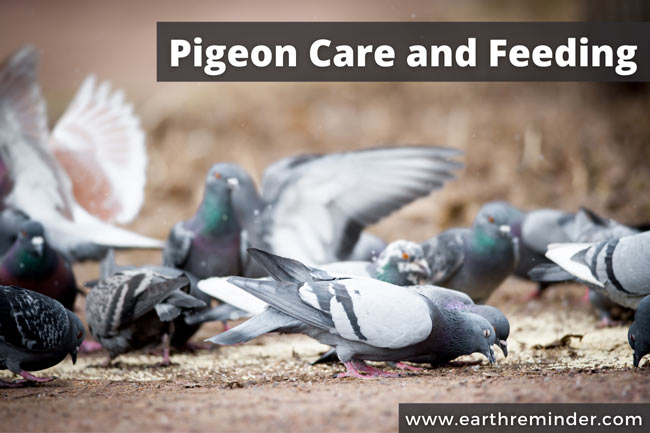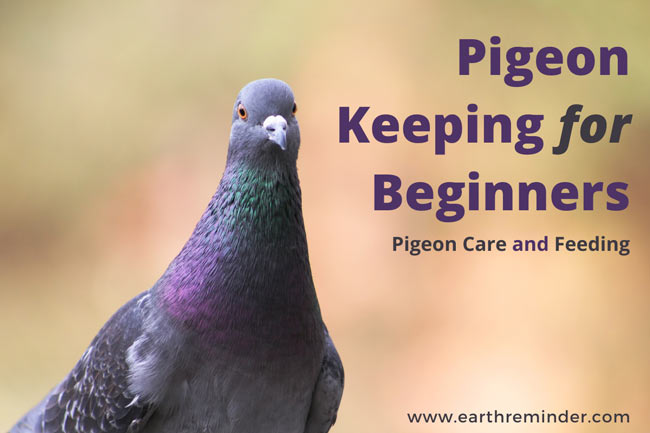Pigeon Keeping for Beginners | Pigeon Care and Feeding
Pigeon Keeping for Beginners: Today, there are thousands of birds out there who require adoption. Sometimes, people don’t have enough strength or financial capacity to take care of large animals like cats and dogs. In such circumstances, it’s a great idea to adopt a pigeon. Pigeons in the wild usually live up to six years, but when domesticated, they can go up to twenty. But pigeons need good care, and even though their needs are very basic, it’s important to learn pigeon keeping.
Table of Contents
Pigeon Keeping for Beginners:
If you’re planning to get a pigeon as a pet, keep reading to learn the correct way of pigeon keeping for beginners!
How to Start Pigeon Keeping?
As mentioned earlier, pigeons are company-seeking animals. It’s advisable to buy two pigeons at the least when you buy pigeons, but it’s not compulsory. But keep in mind, you’ll need to spend considerable time with a single pigeon to keep it mentally fit!
One important factor in deciding whether the pigeons live inside or outside is where they initially came from. If it is a rescued pigeon, it must stay outdoors for the first few weeks to feel closer to home. Keep it in a cage to protect it from predators.
For pigeons that you buy from a pet shop, the number of pigeons decides if they’ll live outdoors or indoors. In the case of few pigeons, keep them in a large cage inside your house. The cage should be large enough so that the birds can move around, flap their wings and rest easily. It should also be easy to clean. If you have more than 2-3 pigeons, you must keep them in an outdoor coop.
During cold months, bring the pigeons indoors or provide a heat source for them outside. Just like other animals, pigeons need exercise too. Don’t keep them in their cages all day long; let them out to walk around or fly for some time. Don’t worry about your bird escaping; the constant food and water supply at their cage will always bring them back.
Feeding the Pigeons:
In contrast to what many people believe, pigeons don’t only need seeds as food. The best diet includes pelleted foods, vegetables, and fruits. Examples of these include berries, apples, and chickweed. Pigeons, just like other bird species, especially enjoy worms- so give them these as a treat once in a while.
Water is essential in a pigeon’s diet. Ensure that the water is always clean and fresh – refrain from using tap water. It’s a good idea to keep water in a container inside their cages/coop so that they can drink throughout the day.
In case you have a racing pigeon, make sure they get daily intakes of calcium via supplements. You can add these supplements by mixing them with their food. Racing pigeons involve in much greater activity than normal pigeons, so keep a tab on their health more closely. If it appears tired more than usual, feed them electrolytes.

How To Take Care of Pigeon’s Health?
Despite precautions and adequate care, any organism tends to get sick once in a while. Pigeons, not unlike, also get sick, but it is important to notice any symptoms quickly to avoid further deterioration. The first step when you need to take when a pigeon gets sick is to isolate it from others. This prevents the spreading of the illness and is a safe move for both the sick bird and the other pigeons.
Something which many bird keepers tend to forget is making sure stray birds don’t enter the same cage as their birds. Forgetting to do so increase the chances of pigeons getting sick. Illness can also occur if there is improper care while cleaning the pigeon cage/coop. Instead of plain water, add disinfectants to the water to avoid bacterial diseases. Pigeons need a good air supply while in their cage, so make sure to leave some space for an air pathway. These birds do not like damp conditions, so keep the coop and cage dry at all times.
How To Train the Pet Pigeon?
Believe it or not, pigeons can act rebellious sometimes! Things like not entering the cage after being let loose, or sleeping outside, doesn’t mean the pigeon is uncomfortable! These are acts of rebellion, and such pigeons must be tamed to not do so.
Training your pigeon is essential because it’s key to keeping them safe and healthy. An untrained pigeon might leave its coop at any time and consume something which will make it sick. Often, untrained pigeons gain access to gutter water and drink from it – despite having plenty of water at home.
Effective methods of training are:
- Not feeding the pigeon: Keep the untrained pigeon just outside the cage/coop and feed the others inside. This will teach the pigeon that not following rules will result in no food.
- Don’t let the pigeon outside: When it is time for all the pigeons to get exercise, leave the untrained ones inside while the others get to play. Again, this gives them the message that failing to abide by the rules will end up in punishment.
- Don’t let the pigeon inside! Keep in mind that methods of training can differ from pigeon to pigeon and person to person.
Taking Care of Baby Pigeons:
Typically, pigeons reach maturity at six months. When a female pigeon lays eggs, the mate and her will usually get overprotective- this is normal. Once the eggs hatch, both of them will take sufficient care of the offspring and no extra care is needed until a month or so. During this period, both parent pigeons will produce milk (crop milk) which is the sole food the babies can digest.
Ask a veterinarian about a proper diet for a baby pigeon that does not have a parent. Most likely, you will be recommended a commercial baby bird mixture which you’ll have to feed the bird by a syringe. Make sure that the syringe is cleaned in hot boiling water after each use to avoid infection. Feed this mixture 2-3 times per day until the baby bird is 5 days old. Post that, feed the pigeon with a larger syringe.
When the pigeon is 3 weeks old, it’s time for it to learn to feed itself. Leave some seeds in its cage. Also, keep feeding it water from a syringe until it is a month old. By six weeks, the pigeon is no more a baby and will need proper care just like an adult pigeon.
Conclusion: Of all the bird species, pigeons have been closer to humans than any other bird ever since ancient times. It is rightfully so too because, unlike other birds, pigeons are quite friendly and sociable animals. During the pre-telephone era, pigeons were used to pass messages across borders.
Even as a beginner, you can start keeping pigeons. Just remember, pigeons are to be taken care of just like cats and dogs. So, give them proper care. They can be a wonderful addition to a family, and it’s an amazing experience to have them as pets. If done the right way, you and your family will enjoy its company for many years to come.
